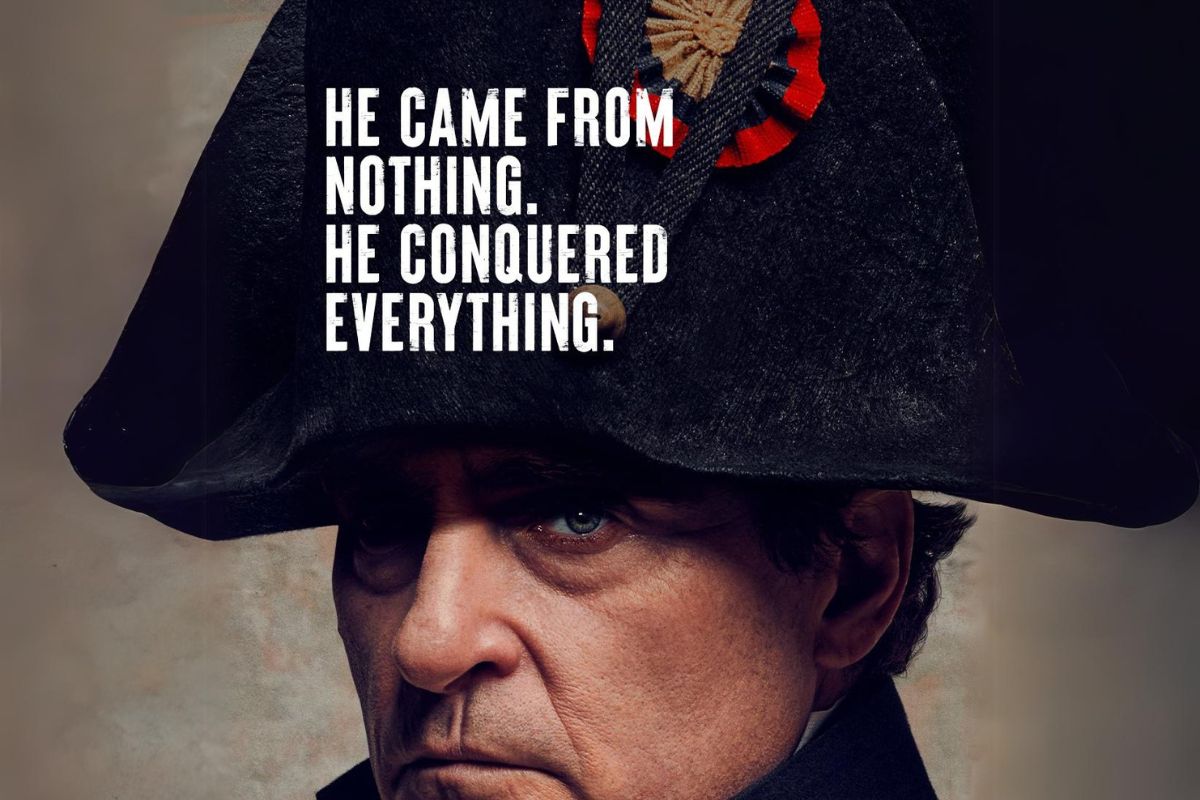Ridley Scott’s much-anticipated historical epic, Napoleon, unfurls a breathtaking visual spectacle adorned with a constellation of inconsistencies and tonal discrepancies. Joaquin Phoenix, as the titular French leader, dances between buffoonery and dramatic flair, while Vanessa Kirby’s poised portrayal of Joséphine clashes against the film’s disjointed narrative structure.
Despite its visual opulence and the endeavor to demystify Napoleon’s legacy, the film flounders in delivering a cohesive and emotionally gripping historical drama.
A Tumultuous Journey Begins
The film launches amidst the chaos of the French Revolution, painting a grim picture as Marie Antoinette faces the guillotine’s blade while a young Napoleon bears witness. Joaquin Phoenix embodies Napoleon—a figure adorned with erratic temperament, capriciousness, and an unquenchable thirst for power.
Visual Splendor Amidst Disarray
Navigating through Napoleon’s military conquests and political machinations, the film excels in visual mastery, particularly in its portrayal of the Battle of Austerlitz. Ridley Scott’s signature brilliance shines through in crafting awe-inspiring and visceral battle sequences, notably earning applause for the breathtaking depiction of Austerlitz.
A Mosaic of Disjointed Narratives
However, beneath the visual grandeur lies a fundamental flaw—a narrative structure resembling a fragmented mosaic hastily pieced together. The film’s disjointed editing disrupts its flow, rendering transitions awkward and scenes disjointed. The whirlwind romance between Napoleon and Joséphine suffers profoundly, failing to establish a believable emotional connection amidst abrupt shifts.
Phoenix’s Polarizing Portrayal
Joaquin Phoenix’s portrayal becomes a focal point, described as exuberantly self-indulgent, almost teetering into caricature territory. The film’s tone vacillates, leaving viewers oscillating between empathy and mockery towards the protagonist. Scott’s attempt at satire struggles to align with the broader narrative, resulting in jarring tonal shifts and misplaced humor.
Strained Chemistry, Lost Essence
Vanessa Kirby’s Joséphine, aiming for groundedness, falls victim to the film’s structural woes. The absence of chemistry between Phoenix and Kirby amplifies the narrative disarray, rendering their romance stiff and discordant. Kirby’s commendable performance feels estranged, accentuating the film’s struggle to unify its diverse elements.
Ambition Lost in Translation
While aspiring to demystify Napoleon’s legacy and critique his pursuit of power, the execution falters. The film’s denunciation of the character feels more like a hurried conclusion than a profound exploration. Scott’s choice to ridicule rather than deeply analyze Napoleon’s political legacy leaves the narrative lacking depth and nuance.
Conclusion: Majesty Without Emotion
In its quest for grandeur, Napoleon forsakes emotional resonance. Majestic visuals and meticulously crafted battles lose significance when divorced from a compelling narrative and well-fleshed characters. The promise of a four-hour director’s cut raises hopes for coherence and expansiveness, as the theatrical version leaves audiences with tantalizing scenes but a sense of unfulfilled potential.

